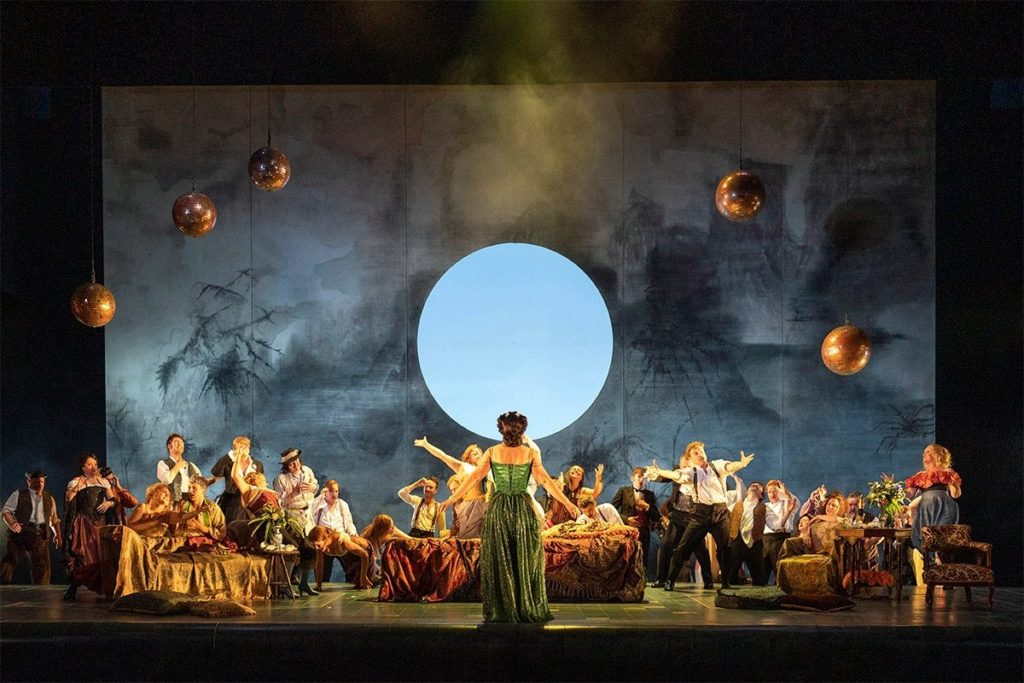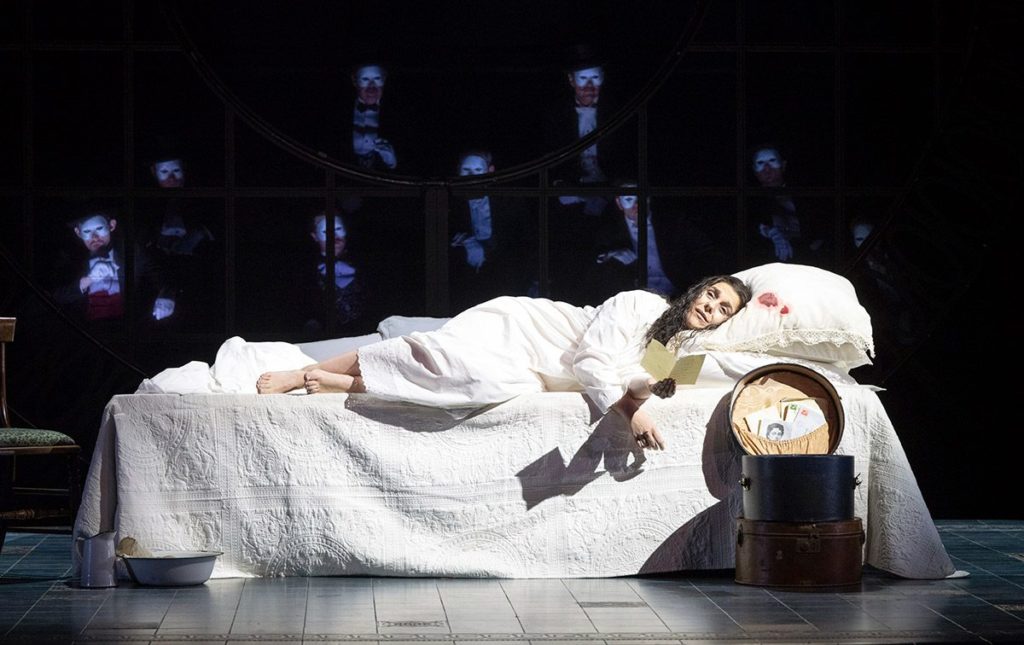
ALESSANDRO Talevi’s production, first seen in September 2014, returned without any revival director, so we must assume that he took full responsibility for any shortcomings that remained.
To enable the maximum number of performances, the three principals were double-cast, as were the conductors.
We were spared the bacilli behind the all-seeing eye that dogged Violetta’s every move – it began as a moon – but the slow handclap from masked males behind a screen at her death was still there, as tasteless and inexplicable as ever. Was this supposed to be a judgment on the courtesan and her trade or misogyny pure and simple? The Carmen charade at Flora’s party also stayed in, complete with explanatory signs.

Fortunately, there were musical compensations, not least in the Violetta Valéry of Alison Langer. Her quiet organisation of her Act 1 double aria seemed to emanate from a singer of much wider experience: her coloratura was calmly controlled and her phrasing succulently spacious, where others so often seem anxious to get it out of the way.
She also looked young enough for the role – a rarity in itself – with a touch of frailty that was engaging. On this showing, she is at the start of something really big. Certainly she looks and sounds ready for it.
Nico Darmanin was a diffident Alfredo Germont at the start, almost as if embarrassed by his affair. His tone was also pinched. To give him the benefit of the doubt, it is possible that Talevi saw him as an angry young man in the lead-up to throwing his winnings at Violetta. But we saw the real Darmanin – and Alfredo – in Act 3 when he sounded altogether more relaxed. We needed more of this resonance earlier on.

Damiano Salerno, like Darmanin making his company debut, is an experienced Verdian and brought a certain finesse to his Giorgio. But there was a sense in which he was holding back, that there was more to give.
The conductor for this threesome was Jonathan Webb, certainly a safe pair of hands and ever conscious of balance. The climax of Violetta’s duet with Giorgio in Act 2 needed better preparation and for once he might have let the orchestra off the leash a little. A little untidiness in the cause of bravura is excusable.
The minor aristocrats were given plenty of vim, and there were distinctive contributions from Amy J Payne’s Annina and Victoria Sharp’s Flora. For the record, the other team of principals were Máire Flavin as Violetta, Oliver Johnston as Alfredo and Stephen Gadd as his father, with Manoj Kamps taking the baton.
Review by Martin Dreyer
Further performances on tour in Newcastle, Nottingham and Salford until November 17
